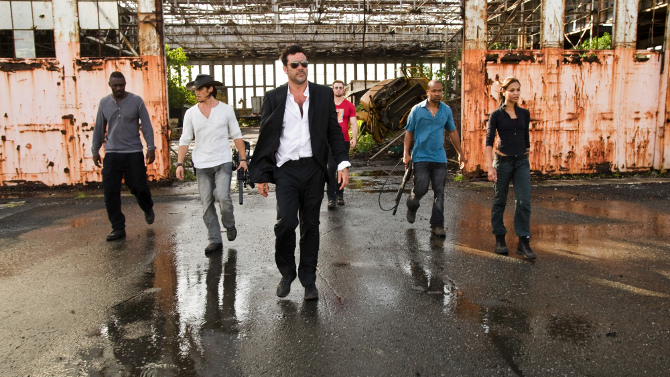
Don’t Stop Believing
It is likely that, if you were able to transplant The Losers release date from 2010 to 2020, the film would be a major hit (sadly, in 2010 it was not). A comic book movie that perfectly combines high octane action with liberal doses of comedy, it starred Jeffrey Dean Morgan (a superb character actor both before and after this film – including memorable stints on television series like Supernatural and The Walking Dead, as well as films like Watchmen and Rampage), Chris Evans (just one year before he really took off with his role as Captain America), Idris Elba (just as he was exploding on the scene with his excellent BBC series Luther – he would also make his Marvel debut the next year as Heimdall in the Thor films), and Zoe Saldana (a year after her breakthrough role in Avatar, she has exploded into superstardom by playing Uhura in the Star Trek franchise and Gamora in the Guardians of the Galaxy Marvel movies), it would be damn near impossible to unite a cast like this again without a hundred million dollar plus budget (for your information, this film had a twenty-five million dollar budget). Following a CIA special forces unit, their leader is Lieutenant Colonel Franklin Clay (Morgan) – a man who looks like a 60s sex symbol (bespoke suit, no tie, three buttons undone, chest hair flowing); his best friend, explosives expert Captain William Rogue (Elba) – who is an aptly named moody wildcard; intelligence expert and computer whiz Captain Jake Jensen (Evans) – a constant kidder who thinks he is cooler than he actually is; their eyes and ears, Sergeant Linwood “Pooch” Porteous (Columbus Short); and sniper Sergeant Carlos “Cougar” Alvarez (Óscar Jaenada) – the strong and silent type.
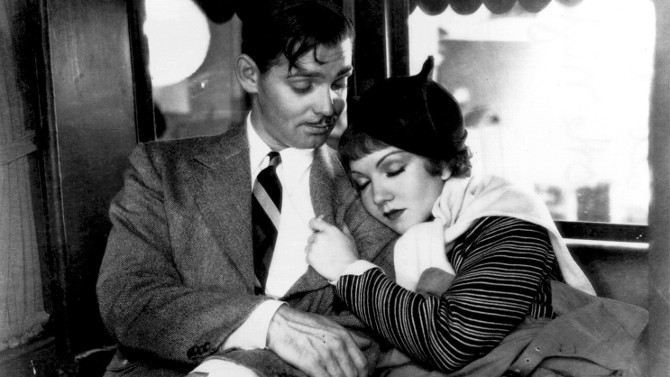
One Night To Remember
It Happened One Night. . . what, you must be wondering? Well, on February 27th, 1935, at the 7th Academy Awards, the aforementioned film became the first ever to win the so-called ‘Big Five’ – Best Picture, Best Director (Frank Capra – his first of three wins for this category in the decade), Best Actor (Clark Gable), Best Actress (Claudette Colbert), and Best Screenplay – in this case, Adapted (Robert Riskin – based on the short story “Night Bus”). . . a rare feat that has only been replicated twice more (with 1975's One Flew Over the Cuckoo’s Nest and 1991's The Silence of the Lambs). Often referred to as the first great romantic comedy as well as the first screwball comedy, all of this success and glory was not guaranteed. Capra, a director at Columbia Studios. . . a name that, at the time, equated to ‘Poverty Row’, was not known as a major studio.
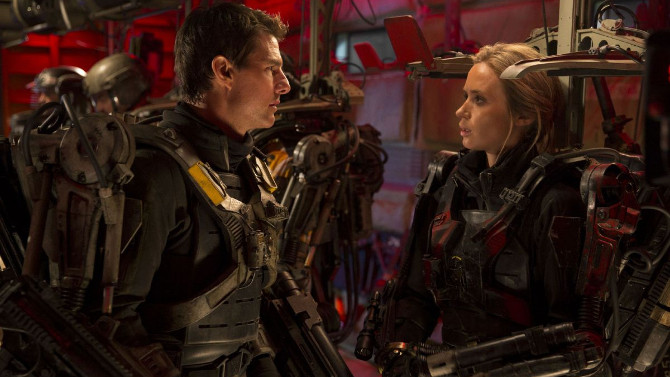
Live on the Edge
What was once 2014's Edge of Tomorrow has somehow become known as Live Die Repeat. I’m still not exactly sure how this has happened (my guess is that it would be partly due to the fact it didn’t do very well upon its U.S. release), as you would think a title is a title. . . yet, with a simple catchy tagline (that, in essence, is a definition of the film’s narrative), it has overshadowed the original title – meaning that, by the time posters, DVD and Blu-Rays were released, the slogan featured more predominantly than the original title. . . it is rare hearing anyone even refer to it by Edge of Tomorrow anymore. A clever alien reworking of D-Day fused with a Groundhog Day premise, it brings two of Tom Cruise’s favourite people together to craft a perfect vehicle for the action superstar. Chistopher McQuarrie (who has worked with the actor seven times. . . and has three more projects in the works with him), who co-writes along with brothers Jez and John-Henry Butterworth (adapting the piece from Hiroshi Sakurazaka’s manga “All You Need Is Kill”), and director Doug Liman (who has made two recent movies with Cruise. . . and has another in the works), bring this sci-fi world to vivid life.
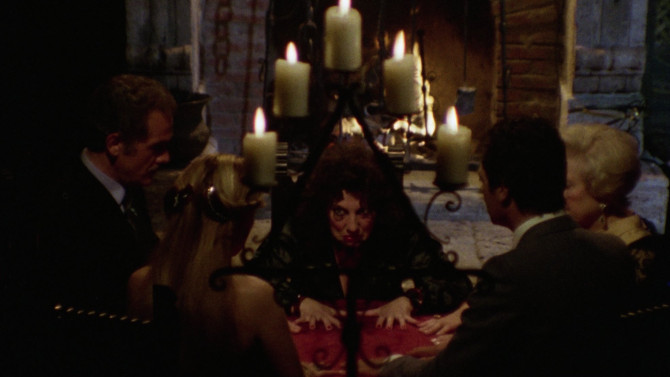
What Could Have Been: Malabimba
Like The Exorcist hopped up on a lethal combination of steroids and Viagra, 1979's Malabimba, directed by envelope pushing Andrea Bianchi (for a reminder of his more well known work, think of his playfully edgy 1975 giallo Strip Nude for Your Killer), is an Italian motion picture not for the faint of heart. . . or you, like one of the characters in the film, might find yourself stone cold. Of course, reading this, I’m sure most will think that this is some sort of poorly done, sleazy exploitation piece attempting to capitalize on the aforementioned horror classic. And though the second sentiment is wholly true, the former is most definitely not so.
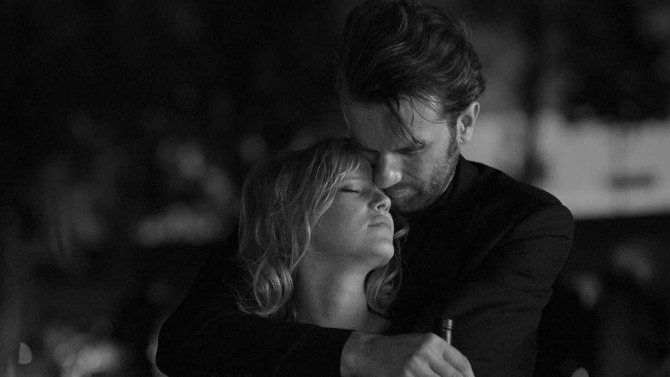
Some Like It Cold
It is likely that any other year, outside of 2018, would have meant that a second one of Pawel Pawlikowski’s films would have won Best Foreign Language Film at the Academy Awards (the other is 2013's Ida). Instead, Alfonso Cuarón’s Roma (in its own right, a truly visionary film) froze out Cold War. Though this Polish export did achieve a nomination in the above mentioned category, as well as receive nods for Best Achievement in Directing and Best Achievement in Cinematography, it, in many ways, got overshadowed by another black and white foreign film released the exact same year. . . which is truly a shame. Set in post-war Poland – 1949, to be exact, Wiktor (Tomasz Kot), a very bourgeoisie musician (a dynamo who can play the piano, as well as write and arrange music) – bold, confident, and gifted, tours the countryside, recruiting the most talented teens and twenty somethings for a folk music ensemble that will tour Poland and the rest of the Eastern Bloc. One of the finds, Zula (Joanna Kulig), an undaunted singer, may not be the most pure talent, though she has that certain ‘je ne sais quoi’. With a mystifying persona, she is spark plug, femme fatale (both director and actress inspired by Lauren Bacall and her sarcastic delivery), and, somehow, ingénue. Wiktor has found his muse. . . love at first sight. . . the genesis of a change that you can never return from. A love affair blossoms.
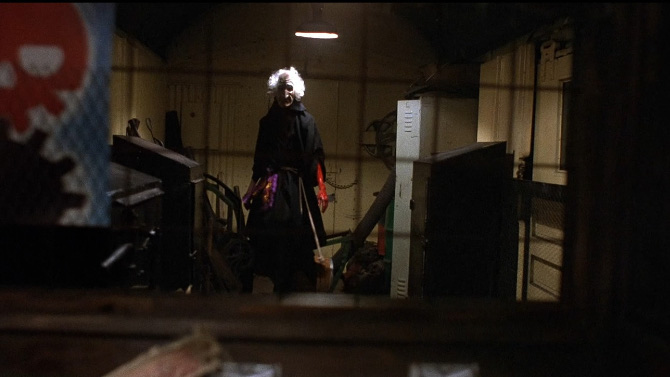
Train Crossing
‘Capitalize’ is the word of the day – and boy was it well conceived. Meaning both ‘to take a chance to gain advantage’ as well as ‘to provide with money’, both definitions speak to today’s motion picture. . . for Terror Train (1980) arrived in theatres just two short years after the seminal slasher movie Halloween (right in the heart of the horror boom), taking a somewhat similar premise to the aforementioned movie while also bringing that film’s star, Jamie Lee Curtis, along for the bumpy ride (talk about trying to ‘capitalize’ on the present cinematic situation. . . and, in the end, they basically doubled its limited 4.2 million dollar budget). A Canadian production (in many ways, Canadians were experts at developing these slasher flicks – think of arguably the first of the sub-genre – Black Christmas, as well as Prom Night, My Bloody Valentine, Happy Birthday to Me. . .), recently I reviewed the big budget 1998 James Bond film Tomorrow Never Dies, directed by Roger Spottiswoode. . . what was he doing eighteen years prior? Directing this low budget horror film (his first ever directorial effort).
